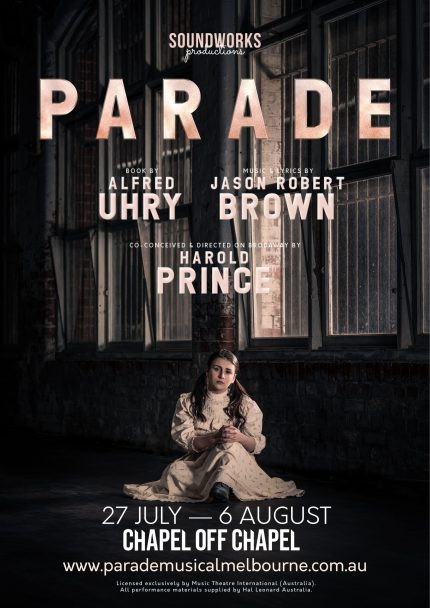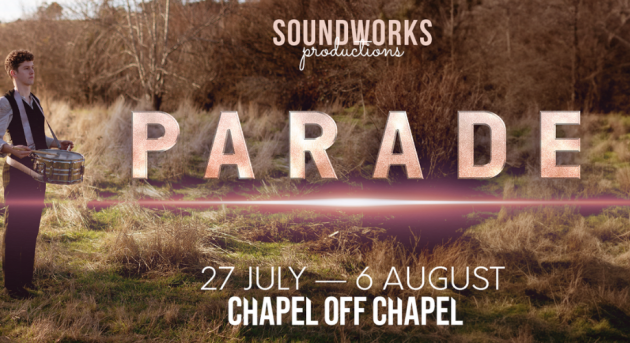Parade: A Stirring Examination of Humanity and Historical Injustices

Set in 1913 Atlanta, Georgia, Parade retells the true story of Leo Frank, a Brooklyn-raised Jew, who, despite being innocent, is wrongfully convicted for the murder of Mary Phagan, a 13-year-old factory worker under his employ. Judged by a staunch Atlantan community, fueled by a sensationalist media publisher and a janitor’s false testimony, Frank’s fate is sealed.
This theatrical gem, however, is far from a mere history lesson. Through innovative staging and courageous character choices, it mirrors contemporary societal issues, stirring audiences to confront the still prevalent anti-semitism, fear of the ‘other’, and religious intolerance. As Winston Churchill famously said, ‘those who do not learn from history are doomed to repeat it’, and Parade makes an impactful case for this sentiment.
According to the producer Benjamin Samuel, “Whilst Parade is a period piece, our production connects the events of the past with events occurring in our modern society through provocative staging, character choices, and production elements.” The dedication to authenticity and respect in this sensitive production is evident in the extensive research and consultation carried out by the team.
The producer stated “The score and script demands a large ensemble (normally 33 strong on Broadway), however, we created our show with a cast of 16. The doubling of tracks, allocation of vocal parts, and maximisation of the beautiful space at Chapel off Chapel have all added a great dimension to the creative planning and design.”
Parade is based on a historically significant, yet highly sensitive topic. How did you ensure that the story was portrayed with accuracy and respect, while still making it compelling for a modern audience?
Underpinning the creative design for this show is extensive research and industry consultation. We engaged members of the Jewish and Black communities to help us unpack the complexities within this story. Our Casting Consultant (Conscious Casting) played a critical role in engaging the talent who we believed would bring truth to the characters, either through lived experience and/or cultural heritage.
The cast is led by Aaron Robuck (Leo Frank) and Montana Sharp (Lucille Frank), both Jewish-Australian actors. The roles of Jim Conley, Newt Lee, and Minola McKnight will be played by actors with Afro-diasporic heritage – these roles are portrayed by Guillaume Gentil, Wem Etuknwa, & Itunu Akin Ojelabi respectively.
Whilst Parade is a period piece, our production connects the events of the past with events occurring in our modern society (for example, anti-Semitism and racism is still rife) through provocative staging, character choices, and production elements. The racial, class, and cultural divides between the characters is at times uncomfortable to witness, however, this is a deliberate creative choice as we aimd to recreate the same dynamic which existed in Atlanta over a hundred years ago in a modern, theatrical context.
One of the driving forces behind this production is its relevance in the current global socio-political climate. To give the themes of anti-semitism, political injustice, and racial tension due attention, the team engaged with community leaders and teamed up with the Anti-Defamation Commission (ADC). The collaboration aims to utilise Parade as a catalyst for discussions on these themes in our modern world, featuring a panel discussion with ADC, Stage a Change, the creative team, and lead actors.
“The themes presented in this show are highly complex and multi-dimensional,” shared Benjamin Samuel. “This provided us with valuable perspectives on modern social constructs, through the lens’ of marginalised communities, which could then enable us to contextualise the subject matter of this show and perform it respectfully.”
How did you approach handling the themes of anti-semitism, political injustice and racial tension in the production, particularly given their relevance in our contemporary society?
In preparation for the pre-production process we engaged several community leaders (especially Jewish and BIPOC) in discussions on anti-semitism, injustice and racism – first within the creative industries, and more broadly Australian society…. We have also teamed up with the Anti-Defamation Commission (ADC), and its chairman Dr Dvir Abramovich, to use this theatrical piece as a vehicle for discussion about anti-semitism and bigotry in our modern world. To continue this conversation, as part of the theatrical experience, we are hosting a panel discussion on Sunday, 30 July (following the matinee show) with the ADC, Stage a Change, the creative team, and our lead actors Aaron & Montana, which aims to prompt dialogue on the relevance of the show’s themes to us today.
The character of Leo Frank is faced with a multitude of adversities throughout the show. How did you guide your cast in understanding and representing these complex emotional layers?
A lot of empathy and a solid dose of acting techniques! Each character has a very unique journey and relationship to Leo Frank throughout the story. Some actors play multiple characters and, consequently, have more than one character arc in performance. In order to achieve this highly-nuanced, and intricate performance, we dug deep into the text and our research into the historical context of Leo Frank’s trial. We also spent a lot of time exploring the author’s intentions, with a fantastic point of reference which is the current Broadway revival. All of this knowledge, coupled with the high-calibre of performers in this cast, has enabled us to create a thought-provoking and exhilarating experience for the audience.
Parade may not seem like an obvious choice for the theatre. It is a niche musical, telling a grim story in a period setting without glamour. However, it is the very power of historical narratives like this that exposes the potential of theatre to act as a conduit for social reflection and critique. It prompts viewers to question their own unconscious biases, challenging the status quo.
Can you speak to the importance of historical narratives like Parade in the world of theatre? How do you think this production contributes to ongoing discussions about prejudice and injustice?
The relevance and currency of its themes to modern society is undeniable. Historical narratives enable us to reexamine our mindsets and reflect on whether or not we’re still making the same mistakes of the past. Parade absolutely provokes a deep reflection into our own perception of justice and the (…characteristically human…) fear of ‘the other’ in our community. This story also prompts viewers to consider their own unconscious bias and whether we have truly achieved change since 1913.
In its heart-wrenching story and soaring music, Parade is a reminder of the transformative power of theatre, not merely to entertain, but to enlighten, challenge, and inspire. This production offers audiences an opportunity to engage with a crucial conversation, one that speaks to our current world as much as it echoes the past.
Theatre is a mirror, a sharp reflection of society. The greatest playwrights are moralists. – Yasmina Reza
A powerful exploration of historical injustice and a challenge to contemporary society, Parade is a theatrical experience not to be missed. Starting from 27th July and running through until 6th August 2023, the production will light up the stage at the iconic Chapel off Chapel, located at 2 Little Chapel St, Prahran, Victoria.
Tickets are available for purchase via the official production website at www.parademusicalmelbourne.com.au, or by calling the venue directly at 03 8290 7000. Make sure to book your place and become part of this powerful conversation that is as pertinent today as it was a century ago.




Great article however the dates you have listed in the 2nd last paragraph are incorrect – it runs from 27 July to 6 August (not 19th August to 1st September)